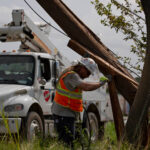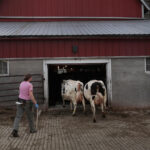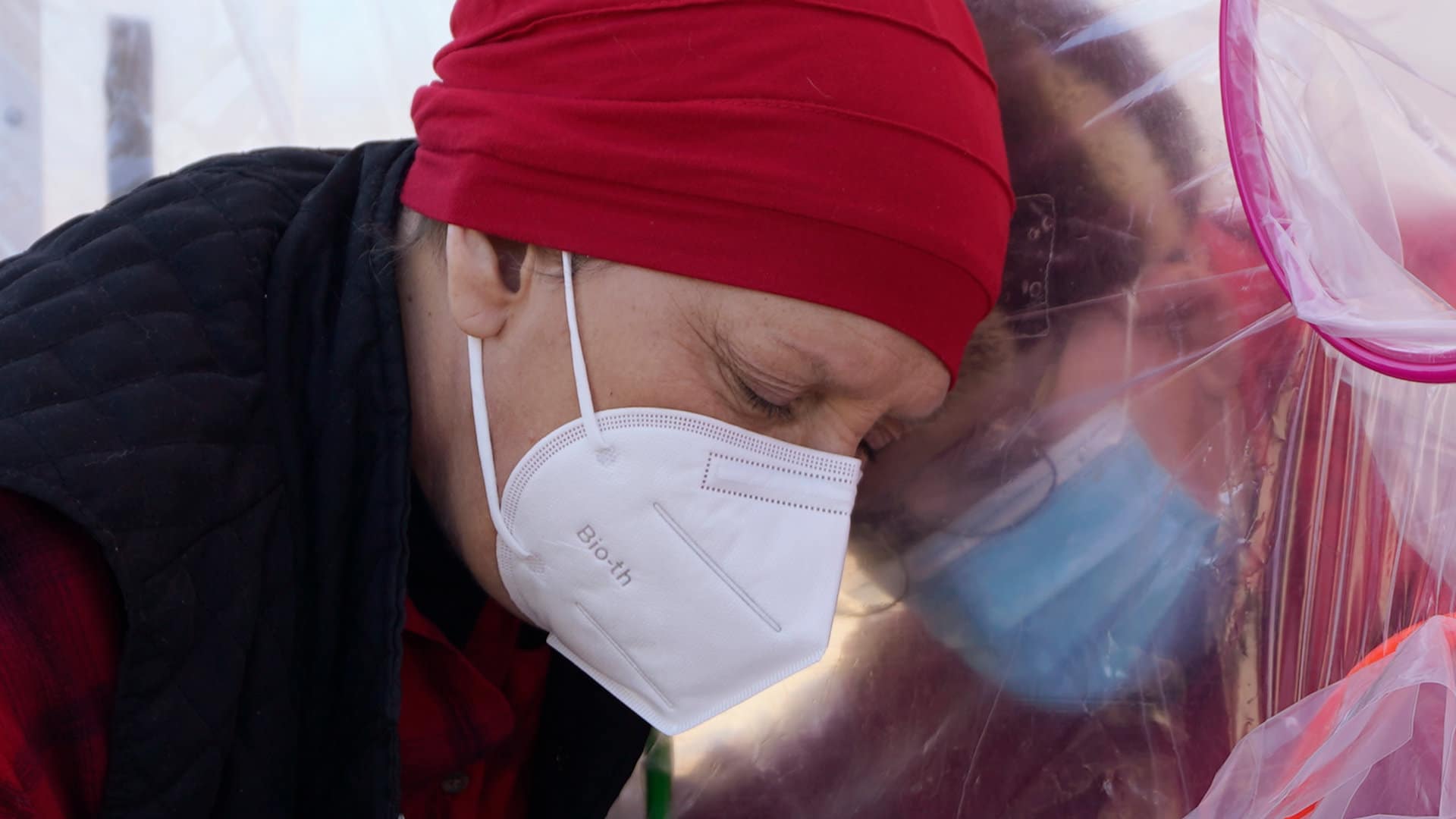On Thursday, an expert panel recommended that the Food and Drug Administration approve a Covid-19 vaccine for public use, clearing a key obstacle for widespread vaccination against a virus that has killed an estimated 292,100 people in the U.S.
The FDA is expected to accept the panel’s decision and authorize emergency use of the vaccine, which was developed by Pfizer and BioNTech. Following recommendations from the Centers for Disease Control and Prevention, the first wave of vaccinations will go to health care workers and nursing home residents.
That rollout will set up a grim race between the vaccine rollout and the virus, which is once again surging in many nursing homes.
Around 1.3 million people in the U.S. live in nursing homes. But the Covid-19 pandemic has killed them at far higher rates compared to the population more broadly. Since the coronavirus reached the U.S. in January, nearly 105,000 residents in nursing homes and other long-term care facilities have died from the virus — some 39 percent of all Covid-19 deaths, according to data from the Covid Tracking Project.
Despite months of virus control efforts, facilities are now struggling to fend off the virus amid a national surge that killed more than 3,000 people in the U.S. in a single day this week — a new record for the pandemic — and overwhelmed some hospitals.
In Western Massachusetts, a nursing home that recorded zero Covid-19 cases before November has seen the virus kill 31 residents in just three weeks. In one New Hampshire facility serving veterans, seven people died from the virus just last weekend, part of an outbreak that has killed nearly one-quarter of the home’s residents. At a Durango, Colorado nursing home, at least 73 residents and 43 staff members have tested positive for the virus.
The new outbreaks come as many nursing home residents grapple with lockdowns that have stretched for months, isolating them from friends, neighbors, and family.
Elderly people are much likelier than younger people to suffer severe complications from Covid-19, which has contributed to the high death rates. So have policy choices, critics say. A long AARP report on “the nursing home debacle of the past nine months,” published in early December, faults a range of factors: policymakers who deprioritized nursing homes early in the pandemic; a health care bureaucracy unable to respond quickly to a crisis; a healthcare model that places people in crowded, hospital-like facilities where pathogens can spread swiftly; and a nursing home system, largely operated by private companies, that analysts say has been underfunded and understaffed for years. Such issues have led some advocates to call for a fundamental overhaul of the long-term care model.
For now, states are preparing to prepare for a major vaccine rollout in nursing homes (and expert models have consistently shown that vaccinating elderly people first will be critical to helping swiftly reduce the pandemic’s fatalities). Such an effort will have to overcome considerable logistical hurdles, as well as skepticism of the vaccine from some nursing home staff.
As the outbreak continues, the speed of that vaccine rollout will have high stakes. Mark Parkinson, the president and CEO of the American Health Care Association and National Center for Assisted Living, an industry association, said the consequences of delays could be drastic. “A one-month delay in distributing the vaccine to all long term care residents and caregivers,” he told USA Today this week, “could result in more than 20,000 of our residents losing their life when a vaccine could have saved them.”
Also in the News:
• On Wednesday, the Federal Trade Commission and 48 U.S. states and districts filed antitrust lawsuits against Facebook. The FTC accused the social media company of systematically targeting and crushing rival companies, rather than competing with them. Examples include Facebook’s purchase of Instagram in 2012 and WhatsApp in 2014. The FTC’s demands include that Facebook sell these two companies, get approval for any future mergers or acquisitions, and never put anticompetitive conditions on software developers. The alleged monopoly affects the lives of millions of Americans as they interact with social media — and in particular, Facebook, Instagram, and WhatsApp, which are among the most popular platforms in the world. “Facebook’s actions to entrench and maintain its monopoly deny consumers the benefits of competition,” said Ian Conner, Director of the FTC’s Bureau of Competition, in a statement from the agency. “Our aim is to roll back Facebook’s anticompetitive conduct and restore competition so that innovation and free competition can thrive.” The Facebook suits follows an antitrust lawsuit against Google, which the Justice Department and 11 states filed in October. (The Associated Press)
• On Monday, Florida law enforcement agents staged an armed raid on the home of a former state data analyst who had been publicly tracking Covid-19 cases, saying that she was suspected of illegally accessing a government messaging system. Rebekah Jones denied the accusation, which could carry a felony charge, and described the raid, which can be seen on video, as purely an intimidation tactic. Jones, who had overseen the Florida’s Covid-19 tracking dashboard, was fired in May after raising concerns about data manipulation. Shortly thereafter, she launched an alternative website tracking the state’s Covid-19 outbreak. Reaction to the raid was fast and largely critical. A Republican attorney appointed by Florida Gov. Ron DeSantis to a judicial panel promptly resigned over the raid, also describing it in his resignation letter as intimidation, and accusing the state of a “reckless and irresponsible” response to the pandemic. As Ars Technica reported, the investigation appeared to be alleging that Jones had used a publicly available password. In response to the criticism, DeSantis’ office said that the governor knew nothing about the raid — and that he would “respect the legal process and let it play out.” (Multiple Sources)
• In South Africa, a controversial pay-for-publication research incentive is coming under scrutiny. Since 2005, the South African government has paid bonuses whenever a researcher publishes a journal article or other scholarly work, with awards of 120,000 rand, or about $8,000, per article. The goal of the scheme was to boost academic output, but critics say it has also encouraged questionable research practices, such as inappropriately allocating authorship, splitting results among several published papers that could have been combined into one, or publishing in so-called predatory journals to evade peer review. In February, the Chinese government abandoned a similar bonus scheme, and now a new survey of nearly 1,000 South African researchers has found that more than half of respondents believe the pay-for-publication policy may be leading to unethical behavior, reports Sarah Wild in Nature. However, roughly 7 in 10 respondents nevertheless said the incentives shouldn’t be abolished. Plagued by a funding squeeze, some academics are hopeful that the payments can be saved with appropriate safeguards and regulations, such as requiring universities to pool bonus payments for all faculty into a centralized kitty, rather than dole them out to individuals. (Nature)
• In the international race for a Covid-19 vaccine, the British pharmaceutical giant AstraZeneca, was long considered a leading contender. But the past several days have been challenging for the company. On Wednesday, a piece in The New York Times raised questions about AstraZeneca’s production partner in China, Shenzhen Kangtai Biological Products, describing the Chinese company’s alleged involvement in a series of dubious political deals, including bribing officials. Meanwhile, a detailed report on the efficacy of AstraZeneca’s Covid-19 vaccine, released this week, showed that it has more modest efficacy in generating protection against the virus than some of the company’s competitors. In addition, infectious disease experts have raised concerns about how those vaccine trials were conducted, and whether the company has been fully transparent about flaws in the design of the studies. And communication lapses by the company have caused U.S. regulators to express new hesitancy about rapid approval for the AstraZeneca vaccine. Still, as the pharmaceutical industry site FiercePharma notes, because the federal government did not order enough doses of the more promising vaccines — one from Pfizer and BioNTech, the other from Moderna — an AstraZeneca vaccine could still be critical to meeting goals to vaccinate the entire country by this summer. (Multiple Sources)
• And finally: Earth’s tallest mountain above sea level may have gotten a little taller. Authorities from Nepal and China announced Tuesday that Mount Everest stands 29,031.69 feet above sea level — more than two feet higher than the Nepalese government’s previous official figure. Despite its steadfast exterior, the mountain is susceptible to changes in height caused by the jockeying of the Indian and Eurasian tectonic plates, the collision of which gave rise to the Himalayas tens of millions of years ago. After tectonic activity caused a deadly 7.8 magnitude earthquake in Nepal in 2015, scientists wondered if Everest’s height had been affected. In May of 2019, Nepal’s Survey Department sent a team to the summit to take measurements using both satellite technology and precision optical instruments called theodolites. Later that year, China announced that the two countries would collaborate on the new measurement and sent its own team to gather data this spring. While the new figure remains tentative as scientists review the data, surveyors from both countries say measuring the mountain is much more than a geographic exercise — it is a point of national pride. “We want to deliver the message that we can do something with our own [country’s] resources and technical manpower,” said Khimlal Gautam, chief survey officer of Nepal’s Survey Department. (National Geographic)
“Also in the News” items are compiled and written by Undark staff. Deborah Blum, Brooke Borel, Frankie Schembri, and Ashley Smart contributed to this roundup.










